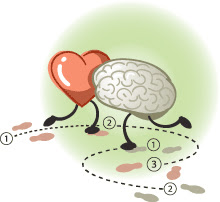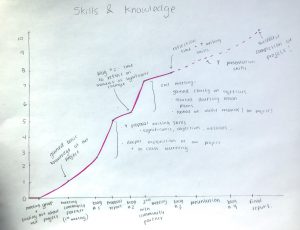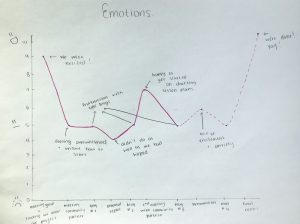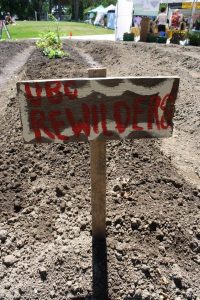“I would say that without a certain amount of anxiety and risk, there’s a limit to how much learning occurs. One must have something at stake. No emotional investment, no intellectual or formational yield” (Shulman, 2005, p. 18)

http://esterlato.blogspot.ca/2013/01/week-2-emotion-and-learning.html
Hello again!
We would like to share with you our progress since our last blog post, and the next steps to completing our project with Riley Park Community Garden. We will also be reflecting on the Moment of Significant Change workshop, and share our emotional and developmental progress. Lastly, we will describe how we intend to successfully complete our project.
Weekly Objectives and Achievements:
| Objectives | Achievements | |
| Week 8 |
|
|
| Week 9 |
|
|
Moment of Significant Change Workshop:
What: The moment of significant change workshop was an opportunity for us to reflect upon our progress this term. Although a majority of our group was unfortunately missing, we met outside of class to discuss moments of significance and graph our progress together. Figure 1 provided below shows how we have emotionally progressed as we experience moments of significance and Figure 2 depicts how our group has developed skills and knowledge throughout the term. The start of the term was an emotional high. Each of us felt excited about the project we had at hand and eager to get started. In contrast, our skills and knowledge were essentially nonexistent. This was important because it signifies our starting point. Another key moment of significance was meeting with our community partner for the first time. Our excitement quickly turned into uncertainty as we felt overwhelmed and had minimal skills and knowledge to address the issue. This was a key point because our initial uncertainty forced us to sit down and formulate a plan of action. Moving forward, the blog posts and proposal report were opportunities for us to develop our skills and apply our growing knowledge. These moments often were accompanied by frustrations, confusion and ambivalence. However, a greater understanding of our project and goals prevailed and we successfully developed skills to move forward. In the end, we hope to finish the term feeling accomplished and proud of our work, and confident in our new-found skills to tackle uncertainty.

Figure 1 – Emotional Progression

Figure 2 – Progression of Skills and Knowledge
So What: This reflection time was important because it gave us a chance to think about how our community project is connected to our learning and development as students in LFS 350. For example, in the most recent week we discussed race and ethnicity, and how it is intertwined with food justice. This topic made us immediately think of the “Rewilding” Bed at Riley Park Community Garden. This bed makes up a significant portion of the garden that is dedicated to growing indigenous plants. Essentially, this opens the door for conversations centred around indigenous food sovereignty and decolonization as we discussed in lecture. Beginning dialog about what was here before us and how the land and food system has been shaped by colonialism is important to achieving food justice (Dring, Lim & Mendes, 2018). Riley Park provides a space for that conversation to happen. Looking deeper, there is an opportunity at Riley Park to further address issues of food justice. As discussed in the article, “Parallel Alternatives: Chinese-Canadian Farmers and the Metro Vancouver Local Food Movement,” colonialism and racism has affected the lives of many Chinese-Canadian farmers, which continues to shape our local food system (Gibb & Wittman, 2013). At the Riley Park Community Garden, there is an opportunity to recognize the history of discrimination against Chinese-Canadian farmers similar to how the Rewilding Bed recognizes the injustices against indigenous people. Furthermore, incorporating traditional Chinese crops and farming practices into the space has the potential to encourage cultural diversity that reflects the diversity of the Vancouver region.

Riley Park Facebook Page: https://www.facebook.com/rileyparkgarden/photos/a.1296722613779405.1073741830.953232228128447/1296723070446026/?type=3&theater
Now What: Taking the time to reflect on our experiences in this course has allowed us to apply the knowledge we have learned in class in the context of our community project. However, as the term is quickly coming to a close, it is time to discuss our strategy for successfully completing our project. Ultimately, our strategy is to first divide and conquer to get our work done. We will then come together to ensure that our work is cohesive. Below is a chart of objectives and strategies that we plan to follow for the last few weeks together as a team.
Upcoming Objectives and Strategies:
| Objectives | Strategies | |
| Week 10 |
|
|
| Week 11 |
|
|
| Week 12 |
|
|

http://empowermentandpurpose.com/why-having-a-coach-is-vital-to-success/
References:
Dring, C., Lim, S., & Mendes, W. (2018). Race colonialism and the food system [PDF document]. Retrieved from: https://canvas.ubc.ca/courses/3164/files/folder/Lecture%20Slides?preview=950470
Gibb, N. & Wittman, H. (2013). Parallel alternatives: Chinese-Canadian farmers and the Metro Vancouver local food movement. Local Environment, 18, 1-19.
Shulman, L. S. (2005). Pedagogies of uncertainty. Liberal Education, 91(2), 18–25. Retrieved March 22, 2018 from http://files.eric.ed.gov/fulltext/EJ697350.pdf